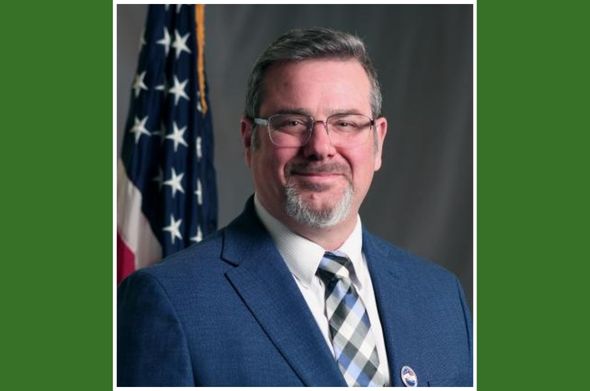Alum, Elections Commissioner Donald Palmer talks Service & Democracy

Shortly after graduating from Jacksonville University, Donald Palmer ‘97 was serving as an intelligence officer in the Navy. He enjoyed the work, but kept hearing the same thing from friends, family, and colleagues: he had a way with words – just like a lawyer.
“When you’re in intelligence, you’re speaking to a lot of folks about very particular, precise things,” Palmer said. “Not only my family, but members of the military told me I should become a lawyer.”
Stetson Law was an obvious choice for Palmer, who had grown up in nearby Seminole and was working at MacDill Air Force Base. Plus, he knew of the school’s reputation as a destination for trial advocacy and thought it could help him find work as a lawyer in the military.
A career-defining education
Palmer said he remembers his time at the College of Law fondly – from the professors who were “true personalities” to the sense of community among his classmates.
“I’m sure many students would say this, but the group study sessions were something that was new to me. I very much enjoyed those interactions,” Palmer said. “It was great to have that camaraderie, that interaction.”
After law school, he served as defense counsel in the Navy as a Judge Advocate General (JAG) officer – and he credits his success to the advocacy skills he learned at Stetson.
“That advocacy training helped me communicate very well as counsel in the Navy, representing clients in a criminal setting,” he said. “It also helped me deal with other clients that we work with to develop trusts and estates and wills.”
A new direction: protecting democracy
Palmer’s career has since taken a different path: promoting voting rights – something for which he has long been passionate.
After retiring from the military, he enforced the nation’s voting laws like the Voting Rights Act as a trial attorney with the Voting Section in the U.S. Department of Justice’s Civil Rights Division.
As Florida’s Director of Elections, he led the state’s transition from electronic voting machines to paper-based digital voting machines prior to the 2008 presidential election, among other key initiatives.
Palmer went on to become Secretary of the Virginia State Board of Elections and served as the Commonwealth’s Chief Election Official from 2011 to 2014.
Now, Palmer facilitates the right to vote at the federal level on the U.S. Election Assistance Commission. The commission, according to its website, is “an independent, bipartisan commission whose mission is to help election officials improve the administration of elections and help Americans participate in the voting process.”
It’s a role he takes very seriously.
“It’s not an ordinary job,” Palmer said. “You’re working in a special place, so you need to treat it that way. Go the extra mile. Because someone’s vote is at stake.”
Advice to students & recent alums
Palmer said he is fortunate to do what he loves – but acknowledges the time and effort it took to get him where he is today. He said the opportunity of a lifetime might not always materialize right away, but that doesn’t mean it never will.
“You may not initially get into your initial passion, but keep your dreams alive. There’s going to be an opportunity if you want, with your skillset, at some point in your career. And you should take that opportunity,” he said. “When it comes together, it works out well.”
And for those interested in working in elections law, he has this advice: go to work on election day.
“I think being a poll worker or serving in an election office will give you great insight into what it actually means to run an election and how those results are finalized,” he said. “It will give you advantages over other lawyers in the field who may not have that experience. And you get to serve your country and your neighbor in being a poll worker.”
Post date: July 31, 2024
Media contact: Kate Bradshaw
[email protected] | 727-430-1580